Comments from a Highland games organizer
Editor’s note: Highland games and Scottish festivals worldwide are the primary performance stage for pipers, drummers and pipe bands. Competitions are the most prevalent platform to take our music to the general public to demonstrate the technical and musical precision of the art.
But in most parts of the world, once-thriving Highland games are under stress. Faced with financial challenges and a declining first- and second-generation Scots immigrant diaspora, once ready-made audiences are increasingly difficult to attract.
Competing pipers and drummers don’t necessarily appreciate what Highland games organizers go through when they work to create an enjoyable and viable experience for the paying public.
We received this enlightening and informative piece from Dave Bruning, Pipes and Drums Chair for the Wisconsin Highland Games in Waukesha, Wisconsin.
Comments from a Highland games organizer
By Dave Bruning
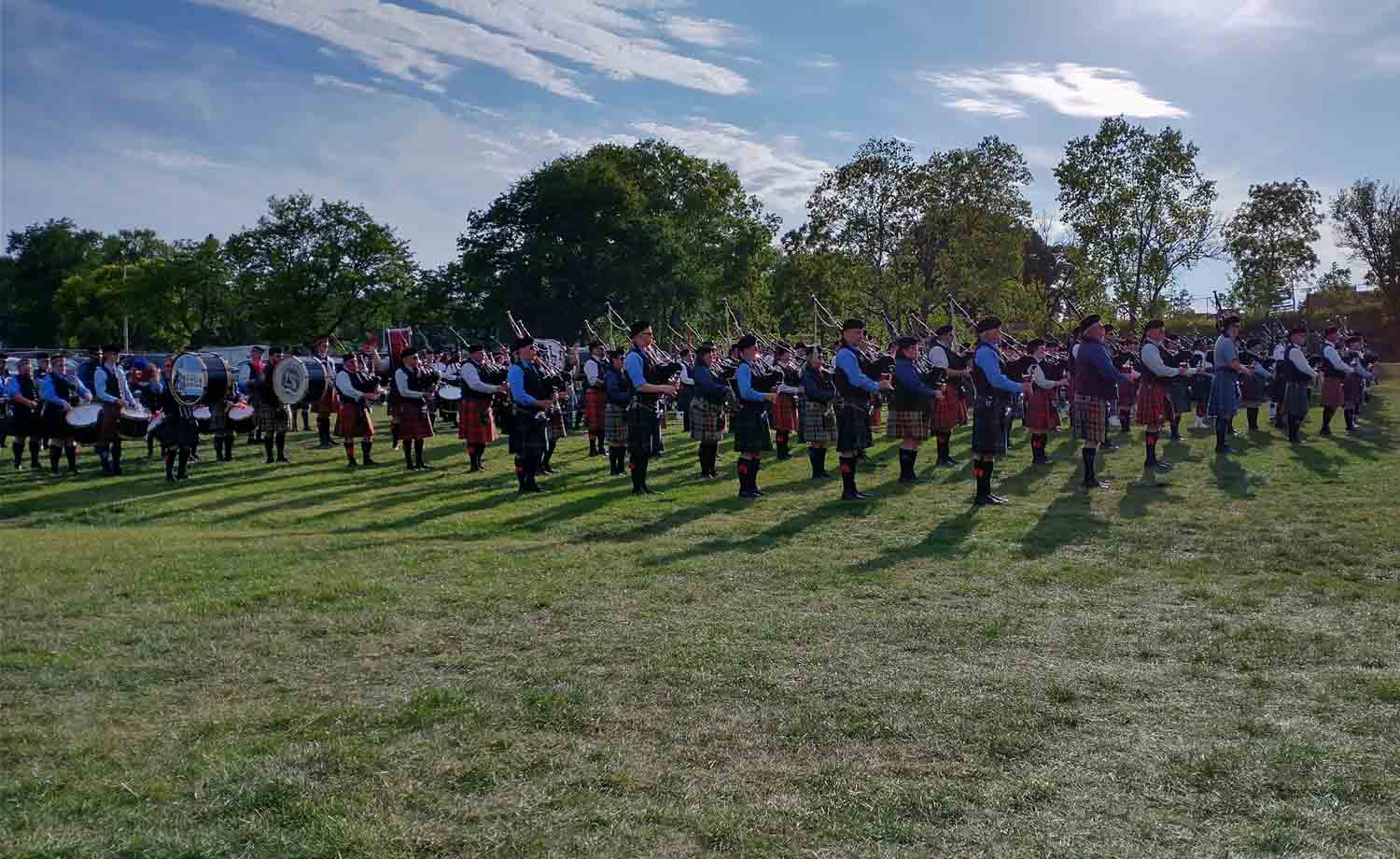
The turn of the Millennium saw a significant rise in piping: New pipe bands formed. Local parades grew in number and funding, resulting in more pipe bands performing for crowds. New Highland games were established, allowing for more competition. Things looked rosy, with each year surpassing the previous year. And then the pandemic hit.
Some bands have struggled with numbers, causing them to withdraw from some games. Attendance is down as people feel their way back into crowded situations, causing game revenue to drop. Local venues have raised their fees, and sponsors have pulled back because of their fiscal struggles, adding to the strain on games’ finances. Volunteerism has decreased significantly, making physically putting on the games harder.
Additionally, climate changes are making the weather more unpredictable, affecting games’ attendance. Our games have suffered through torrential rain, unseasonable cold, and high heat – almost everything except snow in the summer. Our attendance has suffered over the past five years, contributing to an average annual budget shortfall of $10,000.
While some big games, such as Chicago, are getting bigger and better, others are struggling, resizing or simply closing their doors.
Many band members don’t know what it costs to put on a piping competition. They believe their solo or band registration fee pays for the contest, and the pipe band association pays for any deficiencies. Both points are wrong.
For example, in the Midwest Pipe Band Association (MWPBA), a band pays a registration fee of $80 per contest. But until 2024. they received a minimum of $100 in travel money, so the games started in a financial hole before the first note was played. Soloist registrations do not cover the judges’ fees, much less other expenses.
The pipe band association sanctions a competition and sets the rules. For example, the MWPBA approves the judges and names a chief steward and scorer to conduct the competition. But the local organizing committee, consisting of about a dozen volunteers, pays all the costs and provides most of the labour.
The costs of our games total around $70,000. The venue costs about $14,000; tent rentals are about $9,000; security $4,500; golf carts, porta-toilets, first aid, insurance, and other miscellaneous expenses $6,000; other games venues such as heavy athletics, pub tent, etc. amount to $16,500.
The direct costs for piping and drumming (primarily judges and prizes) were $19,000, but the pipers and drummers’ share of the venue and miscellaneous expenses add $4,500. The check we received from the pipe band association in 2023 was $3,415, which includes all of the solo and band registrations, making the net cost of piping and drumming competitions about $20,000.
“Since the pandemic, we have needed to dig into that reserve fund such that one or two more bad years may permanently close the games.”
Admission fees cover about $42,000 of the $70,000 overall costs. Vendor fees, sponsorships, beer tent sales and other income make up about $18,000. So, our games have run about $10,000 in the red in recent years.
In good years, admissions and vendor sales are higher, so we break even or even net some “rainy day” money. But since the pandemic, we have needed to dig into that reserve fund such that one or two more bad years may permanently close the games.
One might ask whether separating the piping, drumming and pipe band competitions from the games would be beneficial. In 2021, the Wisconsin Highland Games held only solo piping and drumming and pipe band competitions and no heavy events or Highland dancing. This contests still cost around $15,000 and was only held because several donors contributed significant cash, and the local organizer provided tents, contributed a large sum of money, paid the venue fees and provided liability insurance. Band and solo fees still covered ony about 20% of the costs.
We need to see games as a partnership between the pipe band associations, pipe bands, and the games sponsors. Games sponsors agree to bear the significant costs of the contests, paying for judges, prizes, and the competition venue. In our case, we have raised admission prices, which helped reduce the budget deficit even in the face of reduced admissions due to weather.
This year, the Midwest Pipe Band Association and member bands decided to do away with band travel money. Thanks to this selfless act by the bands, we will save, on average, $3,000 per year.
There are more practical solutions than raising registration fees. Solo registration fees would have to rise to $40 or $50 per event to balance the solo expenses. Band fees would increase to over $500 per band.
We want to avoid further burdening soloists and bands because we value their contributions to the games.
But if bands do not cover the costs of the competitions, what can they do?
1) Register early. That helps control costs by locking in costs early.
2) Buy food and drinks from the games’ vendors. Go to the pub tent. They depend on the income, and the games get a small cut of their revenue. (We’re all in this together!)
3) Consider volunteering as a piper for the opening ceremony, clan parades or Kirkin’ o’ the Tartan. While musicians in the solo and band contests may be reluctant to play for these events, most bands have “parade pipers” who would be great for these roles. This can save organizers hundreds of dollars and significantly add to the games’ atmosphere.
4) Volunteer to steward the solo contests. It’s easy, and listening to other musicians and hearing the judges’ comments can be instructive.
5) Please thank the pipe band association staff and judges for their hard work at the games. Most might be paid but participate because they love our art form. And thank the local volunteers who may have been working for months on the games and may have spent a few hundred dollars of their own to improve your games.
Highland games are a partnership between the band association, bands and local organizers. Each is important to the end result, and none is more important than the others. If we understand each other’s roles and challenges, we can work together to keep competitions strong for many more years.
Dave Bruning is drum-major of the Celtic Nation Pipes & Drums of Milwaukee and the Pipes and Drums Chair for the Wisconsin Highland games. He lives in Waukesha, Wisconsin.
What do you think? As always, readers are invited and encouraged to provide their thoughts using our Comments feature below.
Would you like to contribute an Opinion piece? We welcome all perspectives, so please send us your ideas. Only with constructive and open dialogue can we expect piping and drumming to progress.

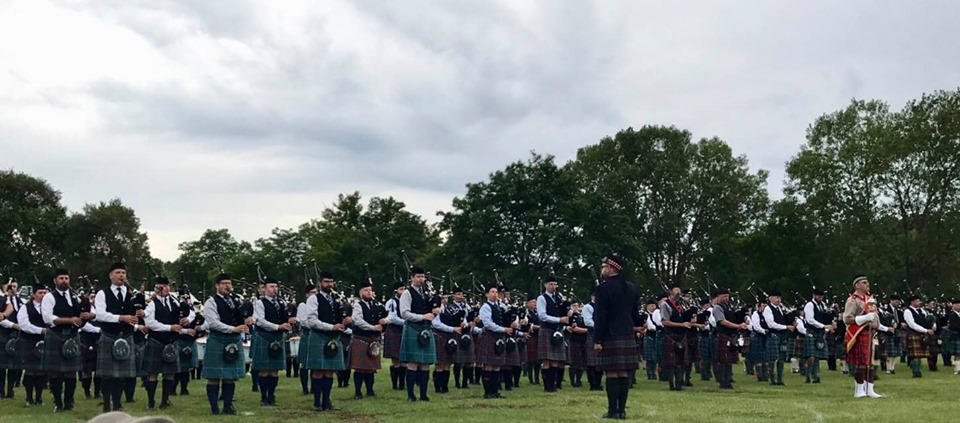
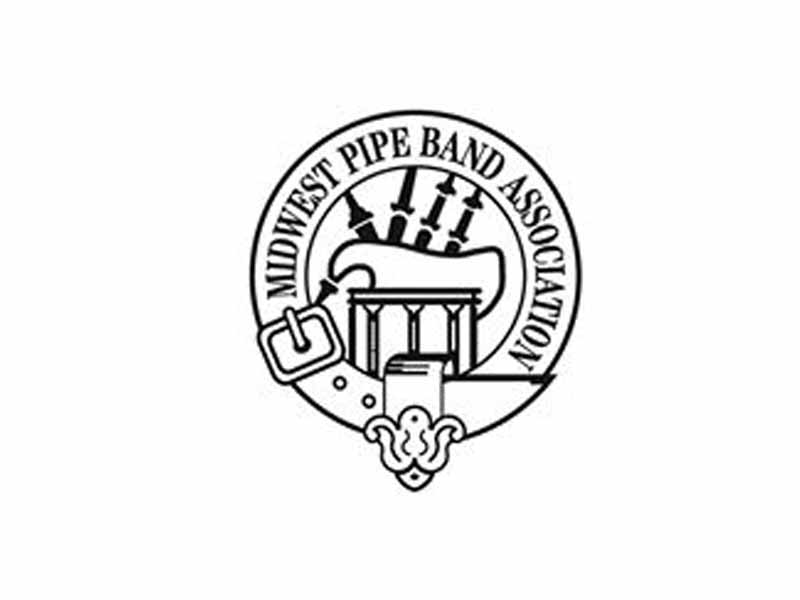
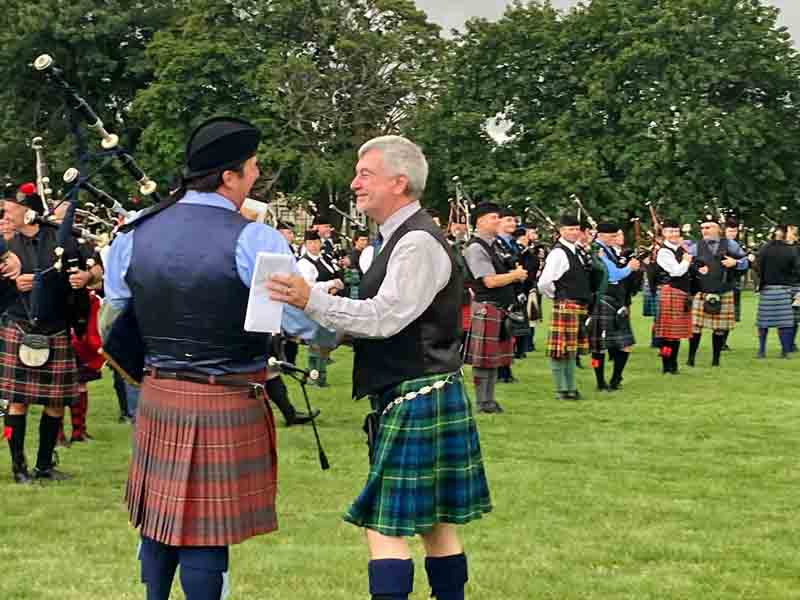
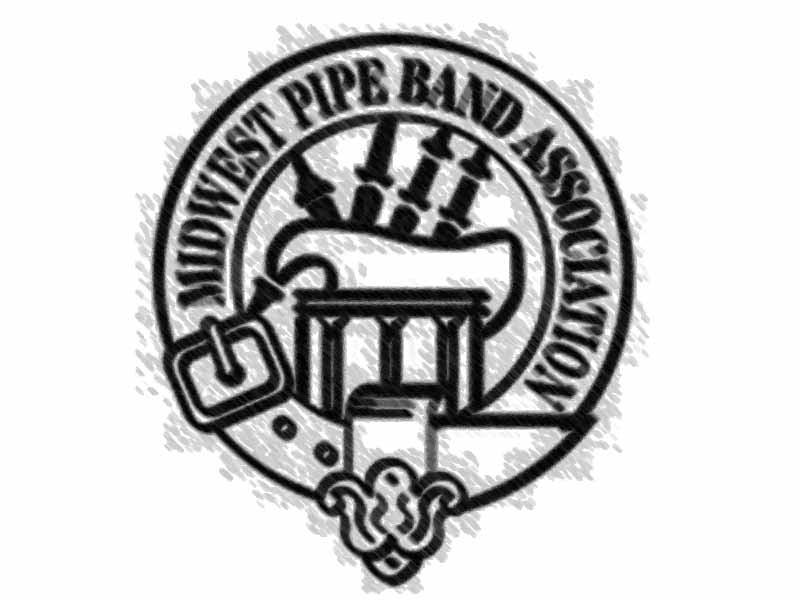
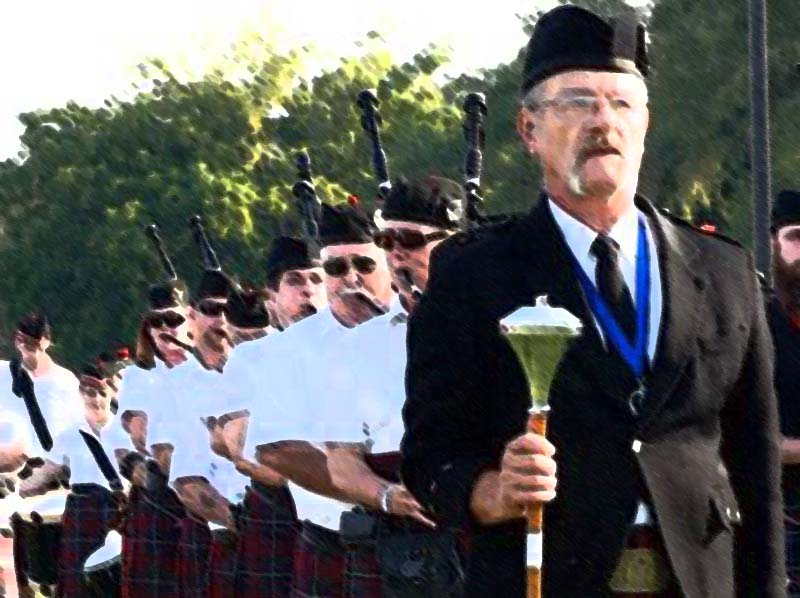
“Buy food and drinks from the games’ vendors” – how about vendors who have healthier, and ideally less expensive options? As a competitor I don’t want to fill up on deep-fried fairground food, hot dogs, and sugary lemonade – but those types of offerings tend to be the majority. Paying upwards of $4 for 12 ounces of water is less than ideal, too.
The Wisconsin Highland Games provide free water to band members and soloists. More Highland Games should also do this (I also provided a limited amount of Gatorade to those who needed it)
As for food vendors, Games are limited to the vendors that decide to show up. Many work on thin margins and Highland Games aren’t often profitable for them. That said we usually have a few vendors who have healthy options but I know that isn’t all Games, or even us some years. If you frequent food trucks in other circumstances, suggest that go Highland Games as they sometimes don’t know about the event.
It’s really sad, but a sign of the times unfortunately. It’s survival of the fittest in the pipe band world, whether that is Highland games, pipe band contests or solos, and we have an association with not the slightest clue how to operate in a 21st century world. Old, male, pale and stale will just not cut it in 2024, but I see no sign of anything changing anytime soon. Young, dynamic, forward thinking folk are just not welcome in the upper echelons of the association
I agree with most of this. It’s never easy to stage highland games, especially here in rainy Vancouver. But despite the uncertainties of weather, rising expenses, reluctant crowds and a fragmented media market, we continue to forge ahead. Piping, highland dancing and heavy events are drains on our financial resources but they are the “loss-leaders” of our event. People come for the piping, caber tossing and music – in that order. Present these marquee events well, try to recoup as much as possible and you should have a successful games, if the weather cooperates of course. Build continuity with your organizing team and suppliers, take care of your volunteer corps, spend your advertising money wisely and raise as much funding as you possible can from every possible source. In a world of mushy Taylor Swift and hip hop music, there will always be people looking to enjoy traditional Scottish and Celtic music and culture, great athleticism and a festival based on a 700-year old “games” tradition.
I’m tempted to say the author lost me at climate change.
Seriously, though, the number of Highland games has been declining for about 20 years. Here in the mid-Atlantic, I can count more games that don’t exist anymore than I can games I still go to every year.
Someone’s got to crack the code on income vs. expenses. The old model only seems sustainable for the largest festivals.
I appreciate Dave Bruning’s thoughtful and timely commentary. Dave presented a clear and fair assessment of the challenges being experienced by Highland games events and P & D organisations throughout North America and beyond.
At the end of the comments, Dave offered five excellent suggestions of things that could help with costs. To those I would add volunteer to help with your P & D organisation or a Highland games organisation. Most need more human resources to share in the work. On the fundraising side, keep an eye out for grants that may apply to your cultural organisations and events. Consider helping out with grant applications. Volunteer to help brainstorm fundraising ideas and participate in making them happen.
Whether you help out with a games organisation or your P & D organisation, more volunteers are greatly needed to ensure a bright and continuing future for the events and activities we know and love, otherwise many more will disappear.
Those of you who run such organisations, encourage your key volunteers to look for new volunteers to “shadow” and learn their jobs to assure succession.
René Cusson, President
British Columbia Pipers’ Association